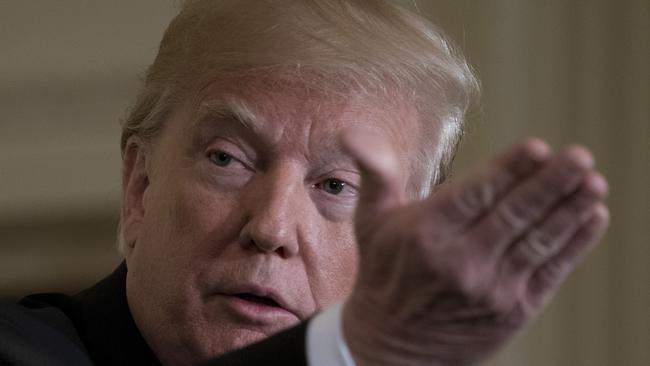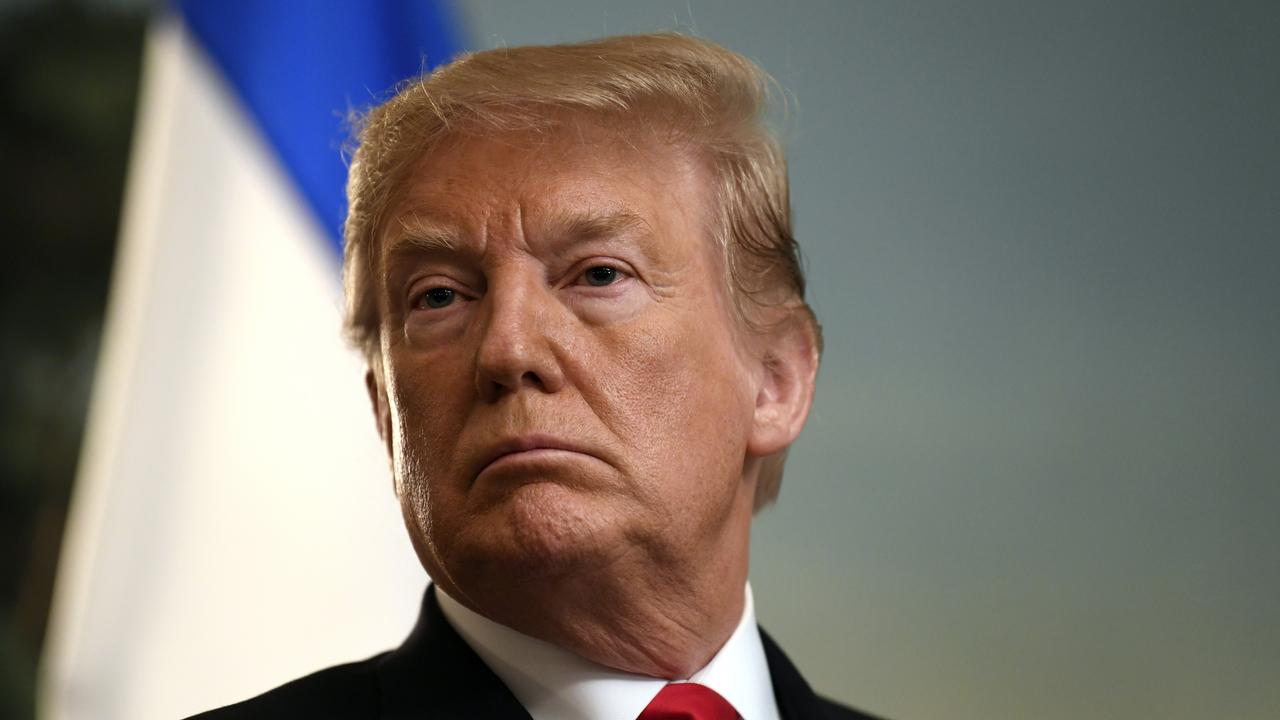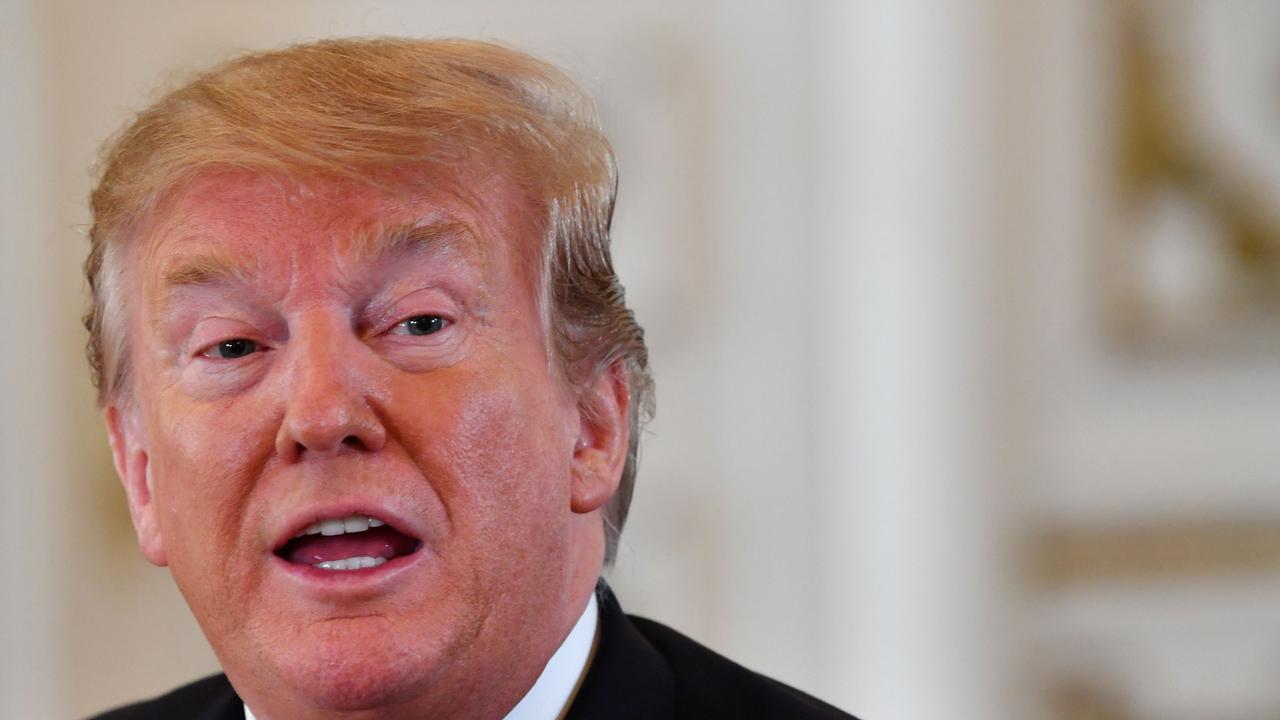US can’t lose trade war with China because of large deficit: Trump
Donald Trump has responded defiantly to China’s tariffs threat, saying Washington’s large deficit means it can’t lose a trade war.

Donald Trump has responded defiantly to China’s threat to impose $US50 billion in new tariffs on the US, saying Washington cannot lose a trade war with China because of its large deficit.
“When you’re already $500 Billion DOWN, you can’t lose!” Mr Trump said.
When you’re already $500 Billion DOWN, you can’t lose!
— Donald J. Trump (@realDonaldTrump) April 4, 2018
His tweet hastened a steep fall on Wall St in early trade, before the market later recovered after Commerce Secretary Wilbur Ross said there could still be a negotiated solution.
The moves follow China’s announcement of plans to impose $US50 billion worth of tariffs on imported US goods including cars, aeroplanes and soya beans. The threat was a tit-for-tat response to Mr Trump’s planned $US50 billion of new tariffs on Chinese imports.
“China has never succumbed to external pressure,” Zhu Guangyao, vice minister of finance, said at a news briefing today. “External pressure will only make the Chinese people more focused on economic development.”
Wang Shouwen, vice minister of commerce said: “If someone wants a trade war, we will fight to the end. If someone wants to talk, our door is open.”
US investors, fearing the prospects of a full blown trade war between the world’s two largest economies, sent the Dow Jones plunging 500 points in early trade before a later recovery.
Before the market opened Mr Trump tweeted: “We are not in a trade war with China, that war was lost many years ago by the foolish, or incompetent, people who represented the US. Now we have a Trade Deficit of $500 Billion a year, with Intellectual Property Theft of another $300 billion. We cannot let this continue!”
As the market plunged, the White House sent Commerce Secretary Wilbur Ross and its new Economic Adviser Larry Kudlow onto the media to say it was possible that Mr Trump’s threatened tariffs may not be imposed and that they could be a negotiating tactic.
“Yes, it’s possible,” Mr Kudlow, the National Economic Council Director Kudlow said.
“It’s part of the process. I mean, I would take the president seriously on this tariff issue,” he added. “You know, there are carrots and sticks in life, but he is ultimately a free trader. He’s said that to me, he’s said it publicly. So he wants to solve this with the least amount of pain.”
Commerce Secretary Mr Ross said: Even shooting wars end with negotiations ... it wouldn’t be surprising at all if the net outcome of this is some sort of negotiation, whether it happens by May or some other time, that’s another whole question.”
Although Washington has identified the $50 billion of tariffs it wants to place across 1300 categories of Chinese imports, no final decision will be made until the end May, giving room for negotiation with Beijing.
China, in turn, said that its plan to levy $50 billion in a tit-for-tat 25 per cent increase in tariffs across 106 US products did not have a date for implementation. It said the imposition of the new tariffs would depend on whether Mr Trump implements his tariff plans.
US farm and manufacturing groups have strongly opposed the use of tariffs to resolve trade tensions with China, arguing that they will result in higher prices for US consumers and lost export opportunities for US producers.
Farm groups, especially those farming Soybeans, the top US agricultural export to China, are deeply worried about the impact of the tariffs. The farmers potentially affected are overwhelmingly from states which voted for Mr Trump, raising speculation that Beijing has designed its tariff response to cause maximum political damage to the president.
Cameron Stewart is also US Contributor for Sky News Australia






To join the conversation, please log in. Don't have an account? Register
Join the conversation, you are commenting as Logout